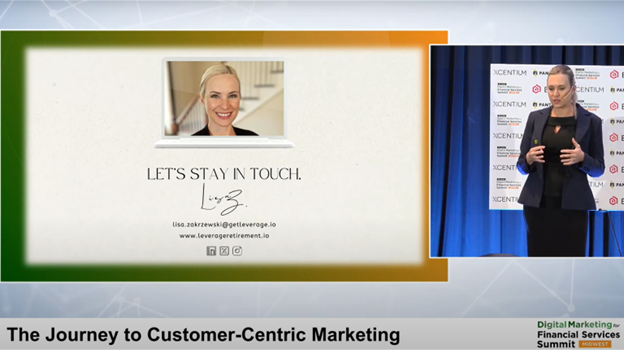In today’s hyper-connected marketplace, customers are tired of being sold to. They’re seeking solutions, not sales pitches. Here’s how to transform your marketing from a transactional approach to a truly customer-centric strategy.
1. Develop Your Customer’s “Origin Story”
Traditional marketing focuses on product features. Customer-centric marketing digs deeper. Create a detailed persona that goes beyond demographics:
- What keeps your ideal customer up at night?
- What are their biggest professional challenges?
- What dreams are they trying to achieve?
Example: Our financial services client discovered their ideal customer (Alex) wasn’t interested in 401(k) plans – he was worried about selling his business without losing everything he’d built. By addressing this core concern, they transformed their marketing from a product pitch to a problem-solving conversation.
Key Takeaway: Your marketing should feel like a conversation with a trusted friend, not a sales presentation.
2. Create an Empathy-Driven Communication Strategy
Complexity is the enemy of engagement. Break down your industry jargon:
- Audit your current communications
- Identify technical language that confuses customers
- Redesign messaging to speak in plain, relatable terms
- Make your solutions interactive and personalized
Pro Tip: If someone outside your industry can’t understand your marketing, you’re doing it wrong.
3. Build a Feedback-Powered Improvement Loop
Customer feedback isn’t just a checkbox – it’s your most valuable strategic asset:
- Implement robust feedback collection mechanisms
- Create cross-departmental communication channels
- Actively use insights to redesign products and services
- Demonstrate to customers that you’re listening and adapting
Real-World Impact: One company reduced customer support calls by 40% simply by updating their client portal’s nomenclature and search features based on customer feedback.
4. Transform Trust into Your Primary Marketing Currency
In industries like financial services, trust isn’t optional – it’s everything:
- Be transparent about your processes
- Share customer success stories
- Demonstrate long-term commitment
- Show how you solve real-world problems
Powerful Statistic: Companies that prioritize customer trust see 2.5x higher revenue growth compared to their competitors.
The Ultimate Shift: From Transaction to Transformation Moving from selling to solving isn’t just a marketing strategy – it’s a fundamental business philosophy.
It requires:
- Deep customer understanding
- Genuine empathy
- Continuous learning
- Commitment to solving real problems
Your New Marketing Mantra: “We don’t sell products. We solve challenges.”
Action Items:
- Audit your current marketing materials
- Interview your customers
- Redesign your approach with empathy
- Measure the impact of your customer-centric transformation
By implementing these approaches, you’ll not just market to customers – you’ll become an indispensable partner in their success.
This blog is based on the 2024 DMFS Midwest Summit featuring Lisa Zakrzewski.





